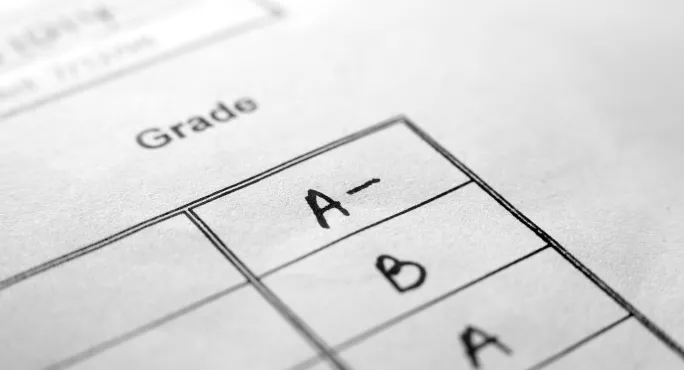
- Home
- SQA responds to concerns about new system for grading
SQA responds to concerns about new system for grading

The Scottish Qualifications Authority has responded to several questions posed by Tes Scotland about advice published on Monday on how students will be graded.
Staff in schools and colleges have raised a number of concerns about the fairness of the system that is being set up following the cancellation of exams, and the demands that will be placed on teachers.
The impact of coronavirus on exams
Here are the questions we posed, and the SQA’s verbatim answers:
Q. If past performance of both the school and the pupil counts, does that mean SQA could lower a student’s grade, as estimated by the teacher?
A. It is important to note that, to ensure fairness to all learners across Scotland, estimated grades could be adjusted both up or down, as part of any moderation that we need to make.
Coronavirus: Grade system is fair, insists Swinney
Grading: Schools’ and colleges’ previous history of attainment will be a factor
Qualifications and Covid-19: ‘How do we ensure fair grades for BAME students?’
Q. Can you spell out how that moderation process will work, why it is necessary and why it is that we can’t just rely on teacher professional judgement?
A. Our moderation process will provide additional reassurance to the system, to ensure consistency across centres and fairness to learners. This will include analyses of centres’ estimates and outcomes, prior attainment, progression statistics, and grade distributions. These measures are intended as further validation of teachers’ and lecturers’ professional judgements.
Q. Is there a risk that students in schools that traditionally do not have high levels of attainment (so usually schools in more disadvantaged areas) are more likely to see their marks go down? If not, why not?
A. The principles upon which we have based this alternative model are of being fair to all learners, while maintaining the safety, security and credibility of Scottish qualifications.
Q. Why is the SQA asking teachers to rank candidates and why is that helpful to the SQA?
A. SQA is unable to collect national performance data from exams or coursework so we have asked schools and colleges to rank order their learners within each estimate band, to help us further refine any moderation that we may need to make to the estimates, and to be as fair as possible to all learners.
Among the issues raised by teachers and lecturers since Monday is whether the system being devised by SQA will ensure fair grades for black, Asian and minority ethnic students.
Teachers are also concerned that talented cohorts of pupils could be marked down because their grades will be higher than those usually attained in the school.
Education secretary John Swinney said in an interview yesterday that the SQA was not “saying how a school did in the past determines how it does today”.
He said the focus would be on how good a school had been at predicting and estimating its students’ grades and not on past attainment.
However, this differs from SQA guidance issued on Monday, which said schools’ and colleges’ previous history of “estimating and attainment” would be taken into consideration.
One physics teacher commented that the fate of one class was going to “keep him up at night” because they were “very strong” and were “tracking to be significantly above the historic standard for physics at the school”. He said he was scared that these students might “lose out because of history of poor prior concordance of other teachers”.
Another teacher, also of physics, said his estimates were usually accurate but if prior attainment was taken into consideration there would be a big difference between one of his current classes and last year’s: last year three pupils achieved As and Bs, this year 14 were on track to do so.
There were also worries expressed that newly qualified teachers and teachers new to a school could be disadvantaged depending on how accurate their predecessors’ estimates were - and also, potentially, how good their attainment was.
A business and computing principal teacher said she was “a new teacher in a school where the grades in my subject have been low for the past three years”.
“This will clearly affect my kids and is so wrong,” she added.
There has also been a suggestion that because appeals have effectively been done away with in Scotland and replaced by marking reviews and clerical checks, the estimates produced by schools in the past were “largely pointless” and as a result there had not been “much need for rigour or reflection upon those”, prompting some teachers to say the SQA should not be using them as a measure of comparison.
In a message to EIS members following the SQA announcement this week, general secretary Larry Flanagan said the union had “a clear view that the exercise of professional judgement by teachers is a sound basis for making this year’s awards”.
He added: “Whilst the statistical measures being deployed by the SQA may add an element of external validation to the process, the key issue is the integrity of the estimates which should not be compromised by additional pressures from any source.”
Register with Tes and you can read five free articles every month, plus you'll have access to our range of award-winning newsletters.
Keep reading for just £4.90 per month
You've reached your limit of free articles this month. Subscribe for £4.90 per month for three months and get:
- Unlimited access to all Tes magazine content
- Exclusive subscriber-only stories
- Award-winning email newsletters
You've reached your limit of free articles this month. Subscribe for £4.90 per month for three months and get:
- Unlimited access to all Tes magazine content
- Exclusive subscriber-only stories
- Award-winning email newsletters



